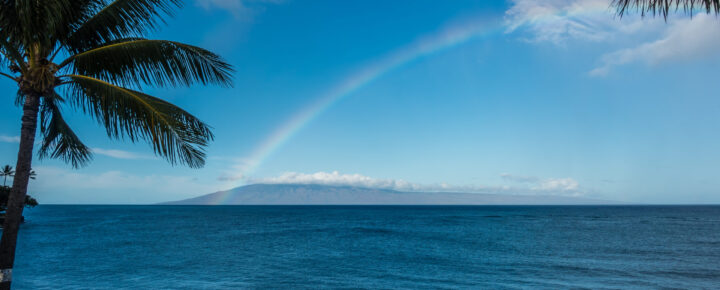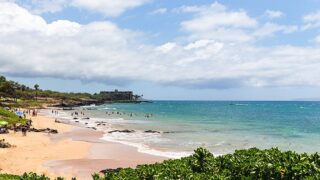Some Maui Council officials appear ready to hit the pause button on the Mayor’s decision to eliminate 7,000 vacation rentals on the island. It’s been reported they are reallocating $300K to study its impacts before proceeding to approve the controversial Maui Mayor’s plan. This move, which we can’t independently confirm based on records from Maui County, would indicate a significant shift from the earlier momentum towards fast-tracking the plan.
This proposed change, based on an article from AP News and Civil Beat reflects growing concerns about the potential economic repercussions and the need for a more in-depth analysis. We have stated that concern here on Beat of Hawaii multiple times, and you have done the same repeatedly in your comments.
Such a prudent reassessment could prove critical in balancing the interests of residents, Maui visitors and businesses. That will help ensure that any action taken supports the Maui community and the vital tourism sector on which Maui relies. It could also help prevent an expected onslaught of potential lawsuits in relation to the proposed ban.
The background of the Maui vacation rental controversy.
A significant and controversial proposal is on the table that would see a drastic reduction in Maui vacation rentals. As Maui County Council appears set to take a step back and further scrutinize the proposal’s broader economic, legal and social impacts, visitors and locals alike are continuing to speak up about what these changes might mean for the valley isle’s future.
Mayor Bissen proposed local legislation aimed at eliminating more than 7,000 vacation rental units by January 1, 2026. This strategy first targets units in West Maui, which is the area most heavily affected by the housing crisis made worse by last year’s devastating wildfires. — Beat of Hawaii.
Originally propelled by a need for more long-term housing and the idea that converting short-term vacation rentals would meet that goal, the proposal may now come under urgent deeper review. This brings hope that the decisions on Maui will be the best-informed possible and comprehensive.
Was Maui Mayor’s plan a snap decision made too hastily?
It isn’t clear whether Mayor Bissen’s decision was too hasty, or whether it was made with adequate economic, legal and social impacts studied. Effective policy formulation clearly requires detailed research to fully understand possible consequences, especially for such a significant plan with enormous impact.
The mayor’s plan was also likely a reaction to immediate pressures as a result of inadequate housing on Maui, both long-term, and as exacerbated by last year’s Lahaina fire.
This policy to drastically reduce Maui vacation rentals might not fully have accounted for the dependency of the local economy on tourism and on vacation rentals. Such a big policy change would have wide-ranging repercussions, including job losses, decreased visitor spending, reduced tax revenue, impending lawsuits, and more, which should have been meticulously analyzed beforehand.
Community and visitor concerns triggered an onslaught of comments.
The Maui Mayor’s proposal to eliminate the 7,000 Maui vacation rentals triggered extensive debates among all involved. Direct quotes from Beat of Hawaii readers highlight just some of the concerns:
- “Think about these numbers… 7,000 units x 40 weeks = 280k visitors. If each spends $5k on their vacation = $1.4 billion into the economy. How will they make up that loss?” – a Maui resident.
- “On our recent two-week vacation, our party of ten spent more than $30,000. If we had to stay in a hotel, the total would be $0. We wouldn’t come.” – a Maui visitor.
- “Last year I paid the State of Hawaii approx $15,000 in taxes from my STR… Multiply that by 7,000 units…” – a Maui vacation rental owner.
Economic implications of Maui vacation rental ban now under the microscope?
As concerns over economic and legal fallout rise, the idea of funding a thorough study seems to reflect a sage commitment to data-driven, sensible decision-making. This study, if it comes to fruition, appears crucial, as it aims to determine the real impact of the proposed rental cuts on the greater community which heavily relies on the diversity of Maui accommodations. It isn’t clear to us what research may have been done prior to the Maui Mayor’s plan being put forth, and whether that was a hasty decision, rather than an adequately thought through and vetted proposal.
With the council’s reconsideration, Maui’s decision-making could set a global precedent.
Maui’s approach, if well thought through, might inspire other destinations that are also grappling with similar issues worldwide, striving for solutions that are well-researched, and sustain both local communities and tourism-based economies.
We greatly value your insights. That of both Maui visitors and residents who all cherish Maui are invaluable. We will continue to follow this and we welcome you to share your perspective, here, ensuring that decisions best reflect both local and visitor interests.
Get Breaking Hawaii Travel News







As a vacation home owner for 20 years, I get to talk to travelers quite a bit. One thing that almost all Hawaii travelers share is the opinion that most native people from Hawaii still dislike us travelers, they tolerate us but really wish we were not coming to their Islands. Also we understand that most of the vacation properties there are owned by people from the mainland and so we would be hurt by the current proposal more than local owners. The proposal will make the owners of these properties want to sell these properties and housing values will take a big hit over there. Besides being a vacation home owner I recently retired after 32 years as a Realtor so I have a little knowledge about things like this. If the goal was really to help local people get affordable housing the government there would invest in low cost condo’s and apartments that most of the other states have been doing for the last several years. One final note, it’s not the economy that is keeping us away!
Could not have said it better, I am an owner at Kama”ole Sands
it is not a goldmine like some people seem to think
Aloha from Pu’u Honua O Pi’iholo, Maui Nei, HK/SMK!
The solution to this problem goes back 131 years, when America illegally overthrew the Hawai’ian Kingdom, and has continued to illegal and unrighteously, occupy the Hawai’ian Islands! And until that is made Pono, you will never have a just resolution that plagues Maui, Hawai’i, and this poor planet!
Speaking the Truth in Aloha, your friend and brother in Christ.
June 27, 1959. Hawaiʻi voters approved the Statehood bill 132,773 to 7,971 votes.
94% of Hawaiians voted in favor of becoming U.S. citizens.
Try not to be a sour-grapes loser.
I think it’s good to revisit. Start fresh with ST rentals. Only hosted homes or staffed condo complexes. Not condos without staff such as FD and security. Which we don’t have. Allow a certain amount of rentals with registered permits w county. If complex is allowed ST have HOAs be larger for the VRBO Owners to cover cost of extra staff and extra wear and tear. Also increase taxes to give back to our Maui community. Meeting new parameters to set forth in the future and also make sure Owners are paying taxes and have legal on island property management that are also legally responsible and licensed with insurance.
There are many ways to have this more controlled and not take away LT rentals and affordable housing/rent for the locals.
Your answer alludes to the fact that many condo developments on the Minatoya List are a mix of short term, long-term rental, and owner-occupied. Are you a long term renter or an owner who resents the vacationers next door? At our complex, only one unit was STR. Then two became STRs, and now 6 are STRs. Why? Because the building is 42 years old and plumbing, pool, roof need replacing. HOA fees increase 25% every year. A few owners with no mortgages do alright. But anyone with a mortgage must rent STR to cover their costs. Kama’ole Sands just had a $63,000 special assessment. Thank goodness for vacationers. Owners can make ends meet with this income. That is why these condos could never be affordable housing. And really, they are much better neighbors than some long-term renters….
If you don’t want my business I can go somewhere else.
Tourism should benefit the community but not trap the community. The only way to depreciate land prices (driving rental rates down) is to develop a strong community planning vision where locals can benefit through employment and resources to sustain the island. Earning billions to spend billions doesn’t do anyone good. Earning $30 per hour doesn’t do you any good if you can’t find a place to live and how will businesses thrive when there is not enough people to work?
How about demanding that your elected officials build workforce housing with the millions of dollars of tax revenue they take in every year? A “strong community planning vision,” as you put it, would use tax income from the tourist industry to benefit local workers by subsidizing rental apartments and single family homes that they can afford with local wages.
Hopefully, we can find honest, trustworthy candidates to vote for.
Just another example why politicians shouldn’t make business decisions. They just don’t have the intellectual capability.
Regarding the STR bill, one only needs to read the local newspaper or turn on Joe Moore each evening to get a feel for what Hawaiian politics is about: greed, nepotism, cronyism, graft and various sundry scandal. This bill is so dead on arrival with its ability to cripple Maui. The $300k cost for the study reminds me vaguely of the Aloha Stadium mess. Light rail anyone? Oops, sorry, that boondoggle presaged all this….
Losing 7000 unit would be devastating to Maui’s economy. Maui’s leader need to be smart and forward thinker, not going backwards. Eliminating the 7000 will force tourists to the large hotel complexes and make Maui less inviting to tourists. Maybe Maui’s Mayor is being bought off by the large hotel corporations?
Yes! Governor Green, too. The hotels would love to see STRs put out of business.
Of course– the hotel industry is laughing with all the ruckus on STR ban –their millions dished out as lobby money to quash STRentals are working
The lack of accountability and gross political pandering has been staggering…not just in Maui but by a state government that has used the short term rental controversy as a diversion to avoid responsibility for mismanagement and a lack of action in the state. What’s more, they seek to win political favor by blaming mainlanders who own property on the island. Funny that they see themselves as separate from the U.S. when it’s politically convenient but believe they are entitled to federal support when they need it. Unbelievable.